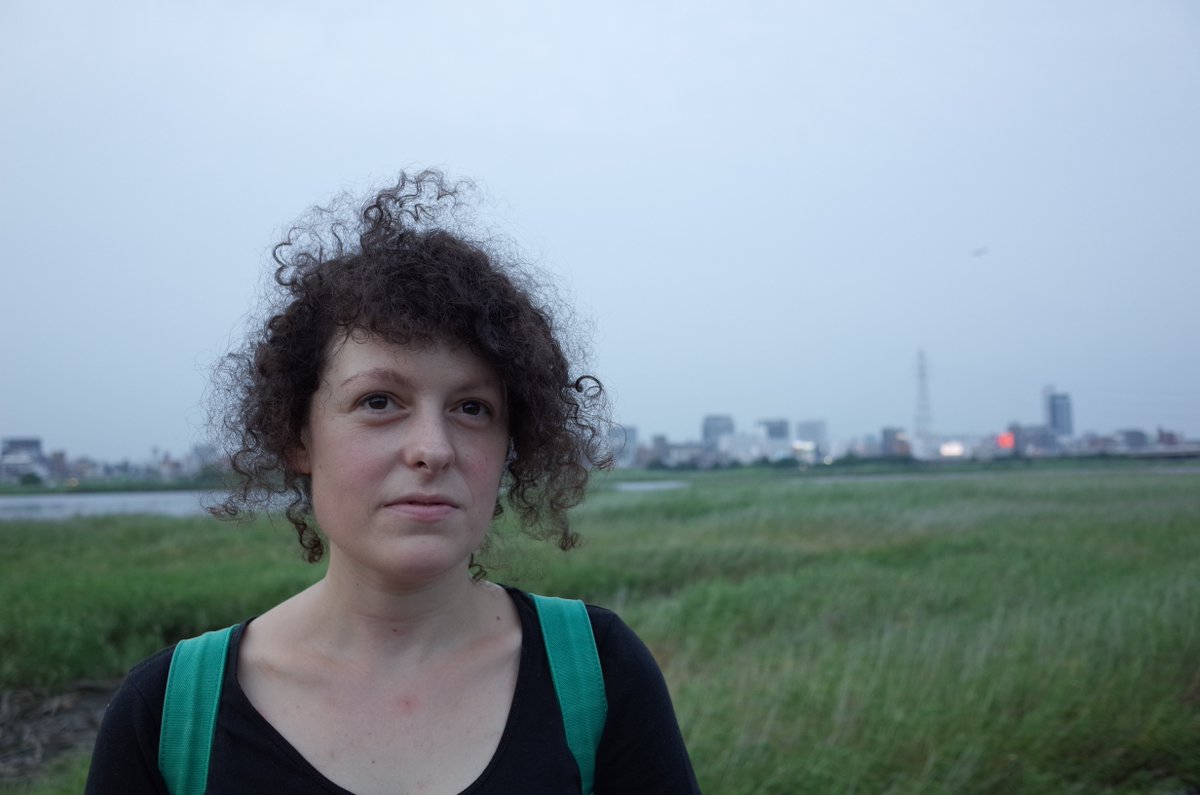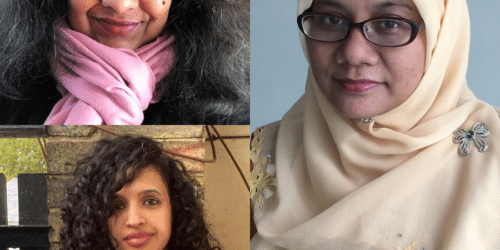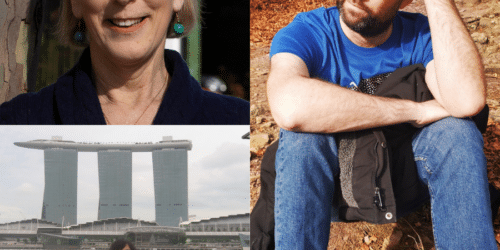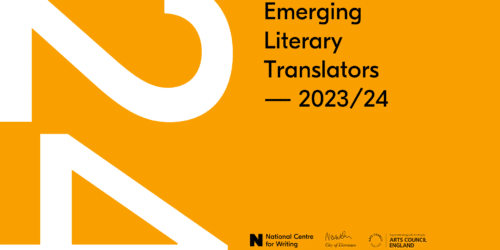
We’re looking forward to welcoming writer, editor and Japanese-to-English translator, Polly Barton, to Norwich UNESCO City of Literature in August for a month-long writing residency. Below, she looks forward to her trip from Osaka to the UK and how a new city might affect her writing.
As I sit down to write this, the door to my balcony stands wide open, a vain attempt on my part to inspire the air into some form of circulatory action. Beyond the balcony railings, Osaka Castle, a balancing act of green and white triangles, looks almost close enough to touch. Encompassing the castle and its two moats is the Castle Park, one of the city’s largest green expanses (not much of an accolade by UK standards), well-frequented by natives, tourists and stir-crazy freelance translators alike. In fact, I don’t even have to leave my room to experience the park. Now the sounds of its Saturday rise up to greet me at my desk: coaches reversing back into their allotted space in the diagonal parking lots, crows belly-laughing in slow motion, a taiko troupe practicing drums, school kids practicing baseball, pre-school kids practicing screaming, and a park van broadcasting a frantic jingle as it crawls along the path, interspersed with a message in Japanese – a van is passing, please watch out, a van is passing…
All of which is just to say that right now, it feels unbelievable to me that in a month or so’s time, I will be sitting in front of a different desk, looking out this time not at a castle, but the streets, sights and people of Norwich. Thanks to Writers’ Centre Norwich, though, that is exactly what is going to happen. As one of the recipients of this year’s residency for translators and writers, I will be working on my translation throughout the month of August in a setting almost entirely new to me.
Norwich will infuse its way in some form or other into the characters
I used to have the idea that being a freelancer meant that I was somehow less deeply embedded in the place that I lived than people who had jobs. I think I thought this because in theory, I didn’t need to leave my flat at all, and in practice, I often left it only an hour or so a day. So, I thought, in a sense, I could have been anywhere. (I once tried to explain this idea at a party to someone and was met with a look of total and utter bewilderment.) More recently, though, I’ve come to take a different view of the situation. It seems to me that the freelance way of working, by which I guess I mean, a way of working that entails a whole lot of time alone, in some way means that one becomes really very involved with one’s environment. That the lack of interpersonal connections is compensated for by a heightened anthropomorphic view of everything around, and in the case of translation, the work that one is involved with somehow merges with the details of the room and what lies beyond it, the voice one hears through the text finds echoes in the fabric of one’s surroundings, to such an extent that even after publication a text can be associated still with a particular view, desktop, coffee cup, or talking van.
I am fairly confident that this effect will be magnified in the case of Norwich, and the surroundings themselves will come to feel like an integral part of the work. At least, I hope so. During my residency, aside from producing a couple of samples for future projects I have in mind, I’m mainly going to be devoting myself to working on The Cowards Who Looked to the Sky by Misumi Kubo, for which I was awarded a PEN/Heim Translation Fund Grant at the beginning of this year. The novel shares out its story between five very different narrators, and getting the voices right for each is a big task that requires concentration and lots of quiet space. It’s my idea that a change of working space will help in this—and that Norwich will infuse its way in some form or other into the characters.
As well as doing plenty of deskwork and solitary communing with the city, I’m also counting on my time in Norwich to provide me with the chance to talk to a lot of people. The second half of what I’m planning for my time there is work on a series of podcasts about Japanese literature—but the full disclosure is that, while I do know some things about Japanese literature, I know almost nothing about podcasts, and it’s going to be a steep learning curve. The team at the Writers’ Centre Norwich have kindly pledged their technical, organisational and moral support, and with any luck, something audible will come of it. Whatever happens, I’m confident that it’ll be a great opportunity to learn a lot, speak to a lot of people I might not otherwise, and generally do a bit of comfort-zone shredding.
Outside in the park, the sun is beginning to lose its edge and the drum players have packed up for the day. Time washes on, carries us to desks we can’t yet imagine. Norwich, it won’t be long!
About Polly
Polly Barton grew up in West London and read philosophy at university. Since winning the inaugural JLPP International Translation Competition in 2012, she has translated a variety of fiction including Tomoka Shibasaki’s Spring Garden published by Pushkin Press, and Nao-cola Yamazaki and Misumi Kubo for the Keshiki series. In 2016 she was awarded the Kyoko Selden Memorial Translation Prize, and in 2017 given a PEN/Heim Translation Fund Grant to translate Misumi Kubo’s The Cowards Who Looked to the Sky. She currently lives in Osaka. Website







